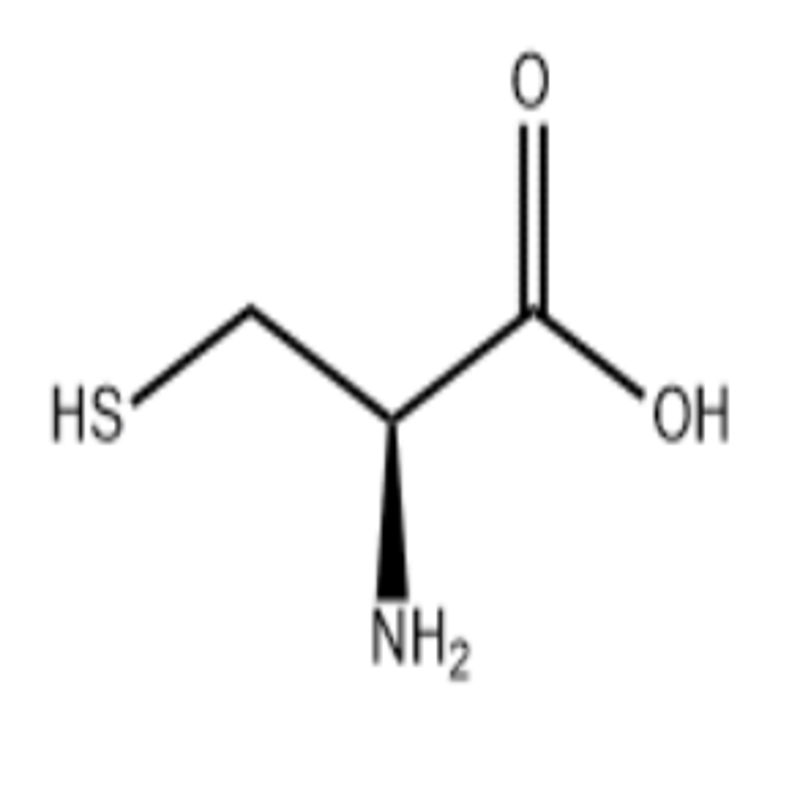-
Categories
-
Pharmaceutical Intermediates
-
Active Pharmaceutical Ingredients
-
Food Additives
- Industrial Coatings
- Agrochemicals
- Dyes and Pigments
- Surfactant
- Flavors and Fragrances
- Chemical Reagents
- Catalyst and Auxiliary
- Natural Products
- Inorganic Chemistry
-
Organic Chemistry
-
Biochemical Engineering
- Analytical Chemistry
- Cosmetic Ingredient
-
Pharmaceutical Intermediates
Promotion
ECHEMI Mall
Wholesale
Weekly Price
Exhibition
News
-
Trade Service
recently, the World Health Organization (WHO) proposed a draft proposal to reduce sugar intake to less than 5 per cent of total daily energy intake, down by half from the 10 per cent proposed in 2002. The WHO believes that reducing sugar intake can reduce the risk of diseases such as obesity and tooth decay.The WHO's draft recommendations are based on two studies, one that systematically reviews and meta-analyses previous studies on sugar intake and weight, and the result that added sugar increases a person's risk of obesity, and another analysis of the relationship between sugar and caries, conducted by the University of Newcastle in the UK, which concluded that reducing sugar intake to 5 per cent minimizes the risk of tooth decay. According to Professor Boyd Swinburne of the University of Auckland in New Zealand, who is on the WHO's expert committee, the 5 per cent decision is based mainly on research on caries rather than obesity. Why are sugars restricted? Does this 5% work?you limit sugar?is one of the three major production capacity substances and an important source of energy for people. Humans are born with sugary sweet foods. A lot of candy is also very popular, very few people will feel that eating sugar will be anything bad. However, a growing body of research has found that eating sugar in large quantities can have adverse health effects. In recent years, numerous studies have suggested that sugar increases the risk of chronic diseases such as obesity, heart disease and type 2 diabetes. Some researchers have even argued that sugar is toxic, and that sugar, like tobacco and alcohol, is a potentially harmful and addictive substance, and have called for restrictions to keep sugar intake strictly controlled, as tobacco and alcohol are treated. A new study in 2014 found that excessive sugar intake significantly increased mortality from cardiovascular disease in adults. As a result, sugar is already considered a major enemy of human health, with a growing number of research institutions and health groups calling for limits on sugar intake and urging food companies to reduce its use. This is why the World Health Organization (WHO) has proposed a sugar limit, which is limited here to add sugar.is added sugar?when scientists talk about sugar, they're not worried about the natural sugars in food, such as fruits and vegetables, which contain fructose, glucose, and lactose in milk. They are worried about artificially added sugars, which the World Health Organization calls Free Sugar, which is commonly called Added Sugar in the United States. Added sugar only provides energy, no other nutrients, our body does not need to add sugar.The U.S. Department of Agriculture (USDA) refers to sugars and syrups that are added to food processing and production, including white sugar, honey, molasses, sugar in fruit juice concentrates, red sugar, corn syrup, sucrose, lactose, glucose, high fructose syrup, malt syrup, maple sugar. What the WHO calls free sugar refers to monosaccharies (e.g. glucose, fructose) and double sugars (e.g. sucrose or sugar) added by food producers, cooks or consumers, as well as sugars naturally found in honey, syrups, fruit juices and fruit juice concentrates. The sugar restricted by the WHO draft is also free sugar. Currently, the most widely used added sugars in the food industry are sucrose or high fructose syrup.5% of
's total dietary energy is equivalent to how much sugar?for an average adult (2,000 kca per day), 5% of total daily energy intake is equivalent to about 25 grams (about 6 teaspoons, 1 teaspoon is about 4 grams of sugar). This means keeping sugar intake below 25 grams per day. Is it easy to control to 25 grams per day? Let's see how much sugar there is in some of the common foods around us.if you've ever been on a food ingredients list, you'll see that a can of sugary cola contains about 40 grams of sugar, which means you're over the limit by drinking a can of coke. Drinks in order to drink well, add sugar. In addition to cola, we usually like to drink a variety of sweet drinks contain a lot of sugar, for example, a certain icing sugar Sydney sugar 63 grams, Sprite sugar 56 grams, iced black tea sugar 46 grams, even 100 percent orange juice also contains 45 grams of sugar (in 500 milliliters per bottle). In the United States, the foods with the most added sugar are sweet drinks, sweets, cakes, desserts, fruit juice drinks, and ice cream. An analysis of the sources of added sugar in the American diet found that sugary drinks contributed about 37.1% of the added sugar sources, 13.7% of pastries, 8.9% of fruit juice drinks, 6.1% of dairy desserts and 5.8% of confectionery. Sugary beverages are the largest source of dietary added sugar.more serious form is that a lot of sugar is now used in both food factories and home-made food. For example, the survey showed that a red meat contains 40-50 grams of sugar, a serving of sugar and vinegar ribs contains 75 grams of sugar, a serving of red roasted fish, fish silk and other sugar 25-30 grams. Bread pastry is made with no small amount of sugar. In the case of less sweet bread, sugar accounts for 4%-10% of the ingredients, while in other pastries, sugar accounts for 15%-20% of the ingredients. There's a lot of food, you look like there's no sugar, there's a lot of sugar. For example, some condiments and sauces also contain sugar, and a spoonful of ketchup contains about 7 grams of sugar. Therefore, it is not easy to control the sugar supply ratio of no more than 5%. Even WHO nutrition expert Francesco Branca says the 5% target is difficult, but people should still target it.you think of this bill?the draft meaningful since the 5 per cent target is not easy to achieve?In fact, whether or not people can really do this 5% at once, at least to remind people of the negative health effects of sugar: sugar is not a good thing, eating more is not good for health, should reduce the intake of added sugar, reduce the intake of sugar in the diet is the general trend.should pay attention to the adverse effects of sugar on people's health, first of all, can reduce the use of sugar in food processing. Perhaps it is difficult for both businesses and consumers to reduce sugar intake by so much overnight, but we can learn from the experience of salt control and slowly achieve this goal by gradually reducing it. Slowly reduce the amount of sugar added in food processing, so that consumers gradually adapt. Like the salt-limiting campaign in the UK a few years ago, after seven to eight years, the amount of salt in the UK market is now much lower, with 50 per cent less salt in breakfast cereals, 45 per cent fewer biscuits, 40 per cent fewer pastries and 25 per cent less bread. At the same time, sweeteners can also be used instead of sugar, without affecting people's taste. Secondly, food enterprises should strengthen food labeling, clearly identify the content of sugar in food, easy for consumers to buy and control sugar intake., we should not put sugary foods all over the place. Although added sugar contains energy, but, the impact of weight is the total energy, if only limit the intake of sugar, while ignoring fat and other energy intake, or will lead to total energy excess, weight gain. Therefore, consumers should pay more attention to a reasonable combination of meals, balanced nutrition. To control weight, the key is to eat and balance, limit the total energy intake of diet, increase energy consumption, more exercise.as a consumer, whether or not the goal of controlling sugar intake of less than 25 grams can be achieved, you need to be clear: our bodies don't actually need to add sugar. Usually buy food, pay attention to check food labels, try to choose low sugar content of food, and pay attention to control the intake of sugar, but also pay attention to control the total energy intake, if you make food at home, but also try to add less sugar, the most important thing is, drink less sugary drinks.







